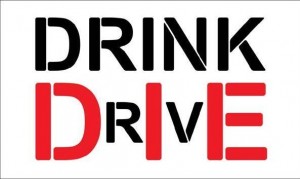California DUI Laws
Although driving under the influence is a serious crime no matter what state you happen to live in, it’s definitely an offense to be reckoned with in California. Even so, many Californians are not fully familiar with the specifics of California DUI law.
In California, there are two very basic drunk driving laws in place that every motorist should be aware of. They are as follows:
• Law 23152(a) states that it’s a misdemeanor to operate a motor vehicle of any kind while you are under the influence of alcohol or drugs (legal or otherwise).
• Law 23152(b) states that it’s a misdemeanor to drive a motor vehicle of any kind while you have a blood alcohol level of .08% of higher.

It should also be noted that many California courts are quite tough on drivers accused of DUI-related offenses, especially in regards to repeat offenses. Despite the fact that 23152 is really only one act, it does – as detailed above – cover two separate offenses. According to Sacramento Criminal Lawyer Michael Rehm, it is possible to wind up convicted of both offenses. “Vehicular manslaughter” covers a completely different area altogether and will only apply in instances where there has been a death.
What Are My Rights If Accused of DUI?
Of course, no one ever plans to be accused of driving while under the influence. However, it’s a good idea to fully understand your rights if you ever are. Many driver’s rights are routinely ignored by the police. Be aware that:
• Police legally need “probable cause” to stop you, detain you, or arrest you regardless of the offense. The details of probable cause must adhere to legal regulations.
• You are not required by law to submit to field sobriety testing. However, you should also be advised that refusing to cooperate with police can have consequences.
• When and if you are arrested for DUI, you must be advised of your Miranda rights under the U.S. Constitution before you are questioned in any way, shape, or form.
• In California, you must be provided with a choice between breath testing and blood testing. Should you decide to refuse (as you are not legally required to submit to either one), you should be formally advised of associated consequences.
• Should you undergo a breath test at the police station, you must be provided with an opportunity to also obtain a blood sample for later independent testing under the supervision of your legal representative.
What Are the Penalties If Convicted of DUI?
Regardless of why you were detained and arrested in the first place, there are a number of DUI penalties that can apply in the event you’re convicted. Some people are fined, given probation, or required to perform community service. Others wind up doing jail time or having their license suspended.
It’s important to realize that even fines can be hefty – ranging from $300 to $1000 and above. Jail time can cover time served from a mere four days to six full months behind bars. DUI school and required installation of vehicle ignition interlock devices are additional possibilities if convicted.





